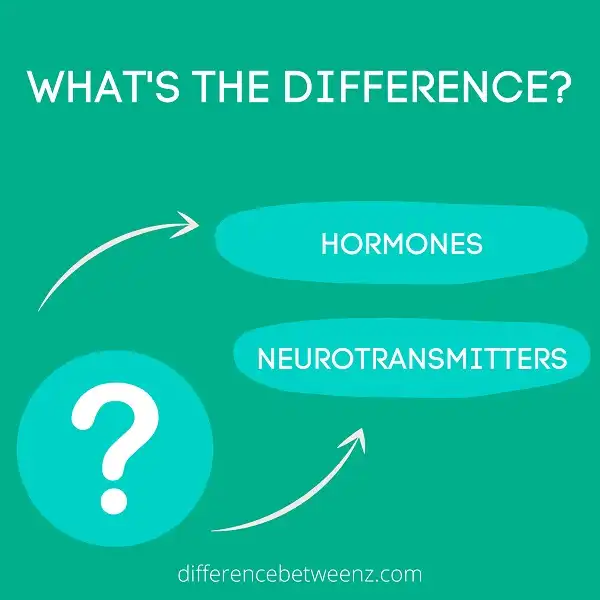In order to understand how hormones and neurotransmitters work, it is important to first understand the difference between the two. Hormones are produced by glands in your body, while neurotransmitters are produced by nerve cells. Neurotransmitters send messages throughout your brain and nervous system, while hormones travel through your bloodstream to tell different parts of your body what to do. Each plays an important role in keeping you healthy and functioning normally.
What are Hormones?
Hormones are chemical substances produced by the endocrine glands that regulate the body’s growth, development, metabolism, and reproduction. They are released into the bloodstream and travel to different parts of the body where they bind to specific receptors and cause a change in the function of that cell or organ.
The hormones most often associated with the endocrine system are insulin, thyroid hormone, cortisol, and sex hormones. However, there are many other hormones that play important roles in the body such as growth hormone, leptin, ghrelin, and osteocalcin. Hormones are essential for the proper functioning of the body and even small changes in hormone levels can lead to serious health problems.
What are Neurotransmitters?
Neurotransmitters are chemicals that relay signals from one neuron to another. They are essential for brain function and for relaying information throughout the nervous system. There are many different types of neurotransmitters, each with a unique function. For example, some neurotransmitters are responsible for regulating mood, while others help to control muscle movement or promote wakefulness.
Neurotransmitters are produced by neurons and released into the synapse, where they bind to receptors on other neurons and produce an electrical signal. This signal is then transmitted to the next neuron in the chain, allowing information to flow between cells. without neurotransmitters, nerve cells would be unable to communicate with one another, and brain function would grind to a halt.
Difference between Hormones and Neurotransmitters
Hormones and neurotransmitters are both chemicals that play important roles in the body.
- Hormones are produced by endocrine glands and affect the function of many different systems, including the reproductive system, the nervous system, and the immune system. Neurotransmitters, on the other hand, are produced by neurons and are responsible for transmitting signals between cells.
- While both hormones and neurotransmitters are essential for normal body function, they differ in a number of ways. For instance, hormones are typically slower to act than neurotransmitters, and they can affect cells that are far from the site of production.
- Neurotransmitters, on the other hand, act very rapidly and only affect cells that are nearby. Additionally, hormones can be stored for long periods of time, while neurotransmitters must be used immediately or they will be degraded.
Finally, hormones can be released in response to both internal and external stimuli, while neurotransmitters are only released in response to external stimuli. Despite these differences, hormones and neurotransmitters work together to maintain normal body function.
Conclusion
The takeaway is that neurotransmitters are the messengers between neurons, while hormones are produced by glands in response to certain stimuli and they travel through the bloodstream to affect other cells. This is an important distinction when it comes to understanding how our brains work and what we can do to keep them functioning optimally.


